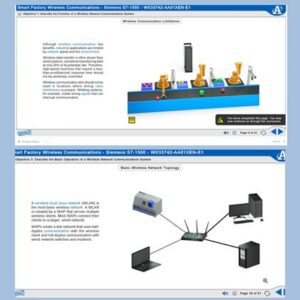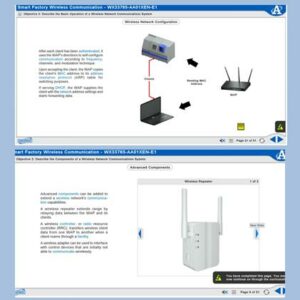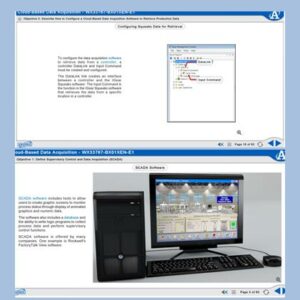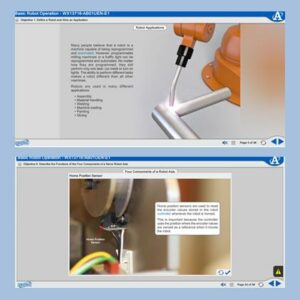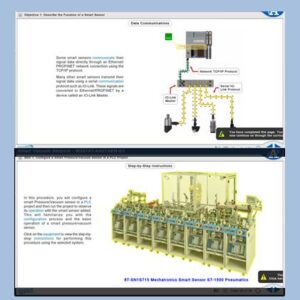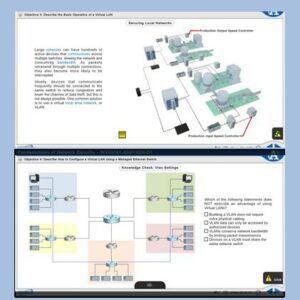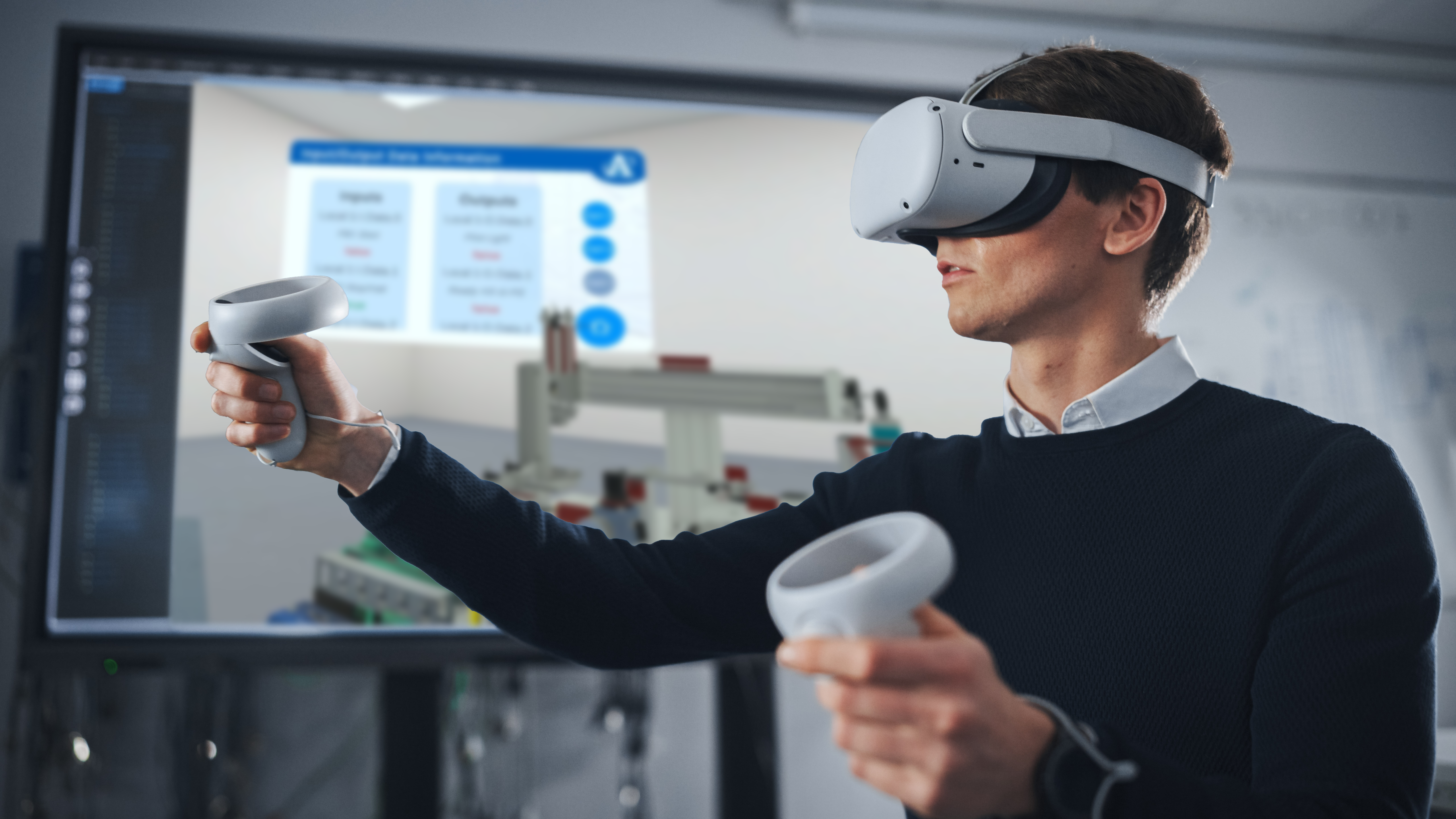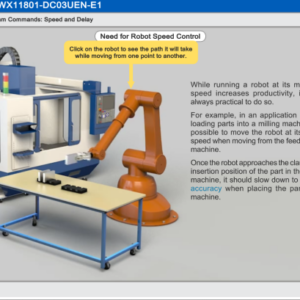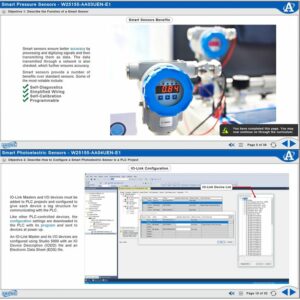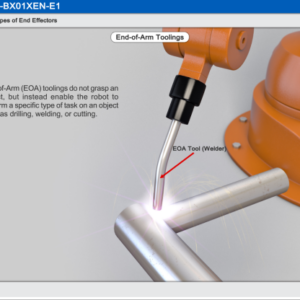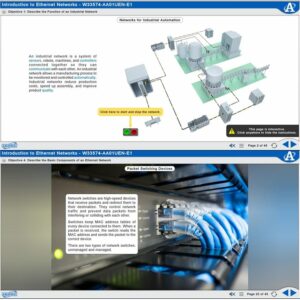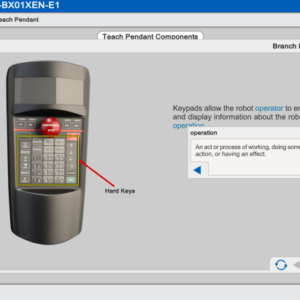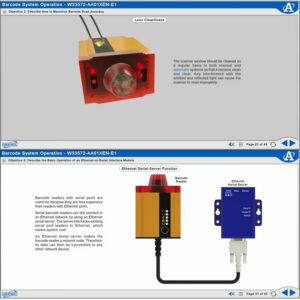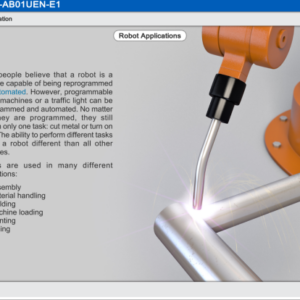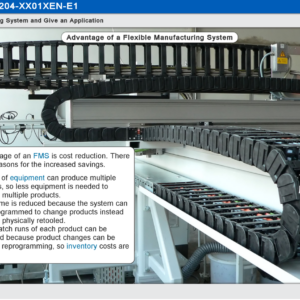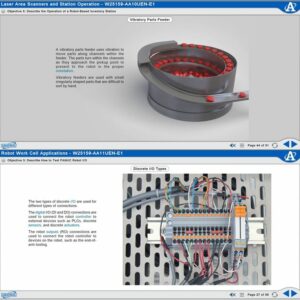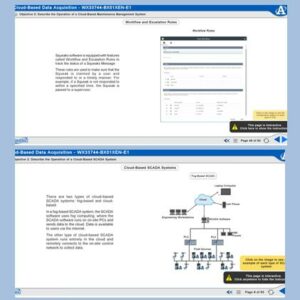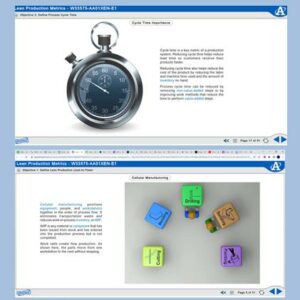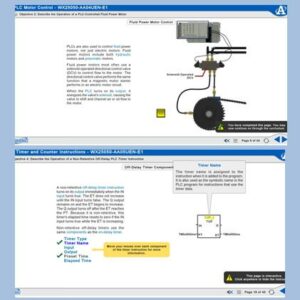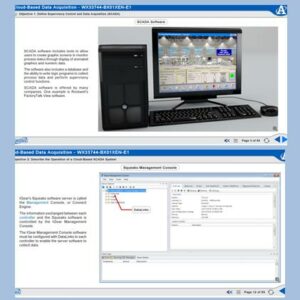Amatrol’s Robotics eLearning curriculum is unique in that it thoughtfully combines in-depth theoretical knowledge with practical, hands-on skills. This powerful combination of knowledge and skills solidifies understanding and creates a strong foundation for pursuing more advanced skills.
For example, the robot operation and programming eLearning course covers important topics, such as:
Basic Robot Operation
Learners begin with an introduction to basic robot operation, including power up and shutdown, homing, and end effector operation. Individual lessons focus on topics like robot safety, axes of movement, robot jogging, teach pendants, homing, and end effectors. Learners will also practice skills, such as jogging a servo robot using a teach pendant, homing a servo robot, and manually operating a robot gripper.
Basic Robot Programming
Learners will study the basics of robot programming, including teaching points and movement and end effector commands. Individual lessons focus on topics like how position points are recorded in a robot’s memory, ways to stop a servo robot, and grasp and release commands. Learners will also practice skills, such as using a teach pendant to teach robot position points, running a servo robot program, and designing a robot program to perform a basic material handling task.
Interfacing and Material Handling
Learners using Amatrol’s robotics eLearning course will study basic principles of interfacing and material handling, including I/O interfacing and looping and speed commands. Individual lessons focus on topics like label and branch commands, I/O interface commands, and applications of robots in material handling. Learners will also practice skills, such as: designing a robot program that uses looping, speed, and delay commands to move an object; connecting digital input and output devices to a robot controller; and designing a robot program that will unload an automatic machine.
Production Control
Learners using Amatrol’s robot operation and programming eLearning course will study various aspects of production control, including operator input interfaces, loop commands, and relational and arithmetic operators. Individual lessons focus on topics like basic arithmetic operators, six relational operators, and the operation and function of loop commands. Learners will also practice skills, such as entering a robot program that uses an input command, designing a robot program that stops a production process if a quality standard is not met, and entering a robot program that has loop commands.






